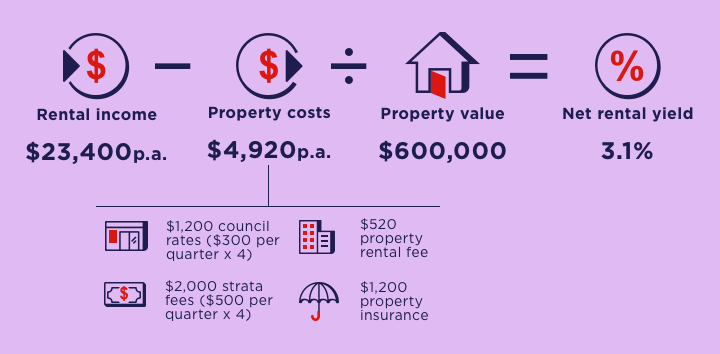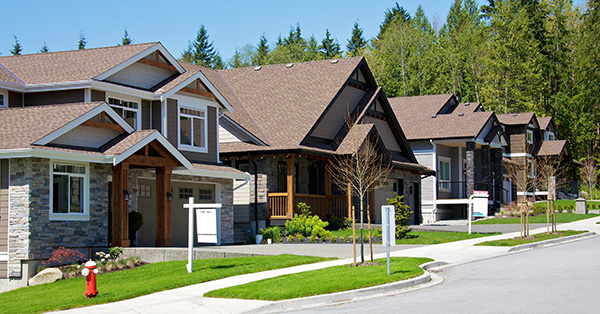
To get your real estate license in MA, there are several steps that you must take before you can start working in the industry. To get your Massachusetts real estate license, you must complete a pre-license course that is 40 hours long, pass the Massachusetts licensing exam and then find a broker to work with.
The Pre-License Course is required. Pass the Massachusetts Real Estate Exam.
You must complete a pre-license course of 40 hours at a board-approved school in order to become a real agent. You will be given a certificate from the school that you can use as evidence of your completed education. After passing the course you are eligible to apply to Massachusetts Board of Real Estate to take your state licensing exam.
Once you have done this, the Massachusetts Board of Real Estate sends you a "Candidate Handbook," which contains verification of education and information that will allow you to schedule an exam with their administrator. You will also need to submit endorsements from three people not related to your candidate.

Application for the License
Once your Candidate Handbook has been reviewed and accepted, you will need to complete the application process with PSI, which is the company that administers the real estate license exam in MA. This includes submitting required documents and running background checks. After they have reviewed your information, an approval letter will be sent to you allowing you to sign up for the test online or at a testing center in person.
Next, pay the license fee. As an applicant you will need to apply for a surety bail.
PSI administers real estate license exams. This organization oversees all MA license exams. They will do a background search, verify that you have completed all the courses, and then let you sign up for the test online or in person. Once you've passed the exam, you can go to a testing center to have a photo taken for your license and pick it up!
You'll have to pay a licensing fee of $103-$150 depending on how long you need your license to last. This fee is normally paid at the exam center. After paying, you will be able to walk out with your real property license in your hand.

How to locate a brokership with which you can practice
Once you have completed your prelicense course the broker will help match you up with a brokerage. Your career will be supported by a team made up of professionals. They will be available to answer any questions that you might have and help you learn.
How to become a successful agent
To be a successful agent, you must work hard, be diligent, and be a good listener. This will allow your to be the most effective broker and salesperson possible while also helping you build your business.
FAQ
How can I get rid Termites & Other Pests?
Termites and many other pests can cause serious damage to your home. They can cause severe damage to wooden structures, such as decks and furniture. A professional pest control company should be hired to inspect your house regularly to prevent this.
How do I repair my roof
Roofs can become leaky due to wear and tear, weather conditions, or improper maintenance. Roofing contractors can help with minor repairs and replacements. Contact us for further information.
What is the average time it takes to get a mortgage approval?
It is dependent on many factors, such as your credit score and income level. Generally speaking, it takes around 30 days to get a mortgage approved.
How much money should I save before buying a house?
It depends on how long you plan to live there. Start saving now if your goal is to remain there for at least five more years. You don't have too much to worry about if you plan on moving in the next two years.
Is it better for me to rent or buy?
Renting is usually cheaper than buying a house. But, it's important to understand that you'll have to pay for additional expenses like utilities, repairs, and maintenance. The benefits of buying a house are not only obvious but also numerous. You'll have greater control over your living environment.
Can I get a second mortgage?
Yes. However it is best to seek the advice of a professional to determine if you should apply. A second mortgage is used to consolidate or fund home improvements.
What is a reverse loan?
A reverse mortgage allows you to borrow money from your house without having to sell any of the equity. It allows you access to your home equity and allow you to live there while drawing down money. There are two types: conventional and government-insured (FHA). With a conventional reverse mortgage, you must repay the amount borrowed plus an origination fee. If you choose FHA insurance, the repayment is covered by the federal government.
Statistics
- When it came to buying a home in 2015, experts predicted that mortgage rates would surpass five percent, yet interest rates remained below four percent. (fortunebuilders.com)
- Over the past year, mortgage rates have hovered between 3.9 and 4.5 percent—a less significant increase. (fortunebuilders.com)
- Based on your credit scores and other financial details, your lender offers you a 3.5% interest rate on loan. (investopedia.com)
- Some experts hypothesize that rates will hit five percent by the second half of 2018, but there has been no official confirmation one way or the other. (fortunebuilders.com)
- 10 years ago, homeownership was nearly 70%. (fortunebuilders.com)
External Links
How To
How to Manage a Property Rental
Although renting your home is a great way of making extra money, there are many things you should consider before you make a decision. We'll help you understand what to look for when renting out your home.
Here are the basics to help you start thinking about renting out a home.
-
What should I consider first? Consider your finances before you decide whether to rent out your house. You may not be financially able to rent out your house to someone else if you have credit card debts or mortgage payments. It is also important to review your budget. If you don't have enough money for your monthly expenses (rental, utilities, and insurance), it may be worth looking into your options. This might be a waste of money.
-
How much does it cost for me to rent my house? It is possible to charge a higher price for renting your house if you consider many factors. These factors include your location, the size of your home, its condition, and the season. Remember that prices can vary depending on where your live so you shouldn't expect to receive the same rate anywhere. Rightmove shows that the median market price for renting one-bedroom flats in London is approximately PS1,400 per months. If you were to rent your entire house, this would mean that you would earn approximately PS2,800 per year. It's not bad but if your property is only let out part-time, it could be significantly lower.
-
Is it worth it? There are always risks when you do something new. However, it can bring in additional income. It is important to understand your rights and responsibilities before signing anything. You will need to pay maintenance costs, make repairs, and maintain the home. Renting your house is not just about spending more time with your family. Before signing up, be sure to carefully consider these factors.
-
What are the benefits? You now know the costs of renting out your house and feel confident in its value. Now, think about the benefits. Renting your home is a great way to get out of the grind and enjoy some peace from your day. It is more relaxing than working every hour of the day. And if you plan ahead, you could even turn to rent into a full-time job.
-
How can I find tenants Once you decide that you want to rent out your property, it is important to properly market it. Make sure to list your property online via websites such as Rightmove. After potential tenants have contacted you, arrange an interview. This will help you assess their suitability and ensure they're financially stable enough to move into your home.
-
What are the best ways to ensure that I am protected? If you are worried about your home being empty, it is important to make sure you have adequate protection against fire, theft, and damage. You'll need to insure your home, which you can do either through your landlord or directly with an insurer. Your landlord will usually require you to add them as additional insured, which means they'll cover damages caused to your property when you're present. If you are not registered with UK insurers or if your landlord lives abroad, however, this does not apply. You will need to register with an International Insurer in this instance.
-
Even if your job is outside the home, you might feel you cannot afford to spend too much time looking for tenants. But it's crucial that you put your best foot forward when advertising your property. Make sure you have a professional looking website. Also, make sure to post your ads online. Additionally, you'll need to fill out an application and provide references. While some prefer to do all the work themselves, others hire professionals who can handle most of it. Either way, you'll need to be prepared to answer questions during interviews.
-
What happens after I find my tenant?After you've found a suitable tenant, you'll need to agree on terms. If there is a lease, you will need to inform the tenant about any changes such as moving dates. You can negotiate details such as the deposit and length of stay. Remember that even though you will be paid at the end of your tenancy, you still have to pay utilities.
-
How do you collect rent? When the time comes to collect the rent, you'll need to check whether your tenant has paid up. If they haven't, remind them. You can deduct any outstanding payments from future rents before sending them a final bill. You can call the police if you are having trouble getting hold of your tenant. They will not normally expel someone unless there has been a breach of contract. However, they can issue warrants if necessary.
-
How can I avoid potential problems? Although renting your home is a lucrative venture, it is also important to be safe. Consider installing security cameras and smoke alarms. Also, make sure you check with your neighbors to see if they allow you to leave your home unlocked at night. You also need adequate insurance. You should never allow strangers into your home, no matter how they claim to be moving in.